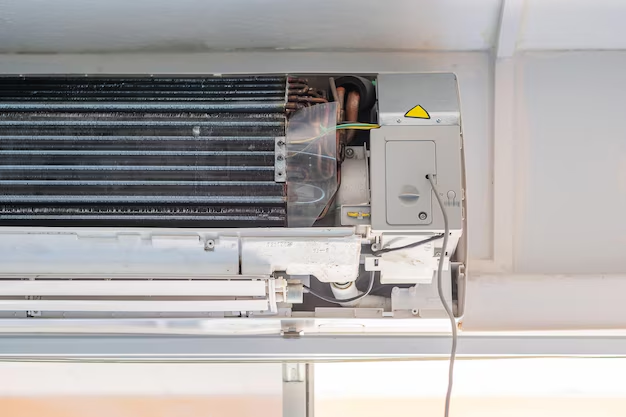Understanding Refrigerator Coolants: Is Freon Still in Use Today?
The humble refrigerator is a household staple, keeping perishables fresh and beverages chilled. But what goes on behind those closed doors to keep things cold? A common question arises: Is there Freon in a refrigerator? Let’s delve into the inner workings of refrigeration, explore the history of Freon, and understand the transition to more environmentally friendly alternatives.
Unpacking the Role of Refrigerant in Refrigeration
How Refrigeration Works
Refrigeration operates on a simple principle: removing heat from one area and releasing it in another to lower the temperature inside. This process is achieved through a closed-loop system involving a refrigerant, which is crucial for heat transfer. This cycle consists of compression, condensation, expansion, and evaporation.
- Compression: The refrigerant gas is compressed, raising its pressure and temperature.
- Condensation: The hot, high-pressure gas passes through coils, releasing heat and turning into a liquid.
- Expansion: The liquid refrigerant expands, dropping in temperature as it moves through an expansion valve.
- Evaporation: The cold, low-pressure liquid absorbs heat from inside the refrigerator, turning back into a gas and continuing the cycle.
The Historical Context of Freon
Freon, a brand name often used generically, refers to a group of chlorofluorocarbons (CFCs) that were widely used as refrigerants. Invented in the 20th century, Freon became popular due to its effectiveness and non-flammable properties. However, it soon became apparent that these CFCs were harmful to the environment, particularly the ozone layer.
Transition to Environmentally Friendly Refrigerants
The Environmental Impact of Freon
Refrigerants like Freon were found to contribute significantly to ozone depletion. This led to global environmental concerns and policy changes. The Montreal Protocol, an international treaty signed in 1987, aimed to phase out substances that deplete the ozone layer, including CFCs.
Emergence of Alternative Refrigerants
In response to the environmental mandates, alternatives to Freon were developed, such as hydrofluorocarbons (HFCs) like R-134a. These newer refrigerants are less damaging to the ozone layer, though some still contribute to global warming.
In recent years, there has been a push towards even more sustainable options like hydrofluoroolefins (HFOs) and natural refrigerants, which offer lower global warming potential.
What’s Inside Your Refrigerator Now?
Refrigerant Types in Modern Refrigerators
Most modern refrigerators do not use Freon; they utilize R-134a or R-600a (isobutane). R-600a is a natural refrigerant and has a minimal environmental impact compared to older compounds. It’s particularly common in Europe and gaining popularity elsewhere for its efficiency and lower carbon footprint.
Identifying Your Refrigerator’s Coolant
To understand what refrigerant your fridge uses, check the appliance’s technical specifications or label, often found inside the unit or in the manual. This will inform you about the type and amount of refrigerant used in your model.
Importance of Regular Maintenance
Checking for Refrigerant Leaks
A properly functioning refrigerator should not leak refrigerant. However, if you notice your fridge isn’t cooling effectively, it might indicate a leak or a problem with the compressor. It’s advisable to contact a professional technician for a diagnosis and repair.
Environmental and Safety Considerations
Handling refrigerants should be left to certified technicians due to potential health and environmental risks. Improper handling or disposal of refrigerants can lead to harmful emissions. Always rely on professionals for repairs and servicing.
Practical Tips for Refrigerator Maintenance 🛠️
- Keep Coils Clean: Ensure the condenser coils are free from dust and dirt to maintain efficiency.
- Seal It Tight: Regularly check door seals to prevent cold air from escaping.
- Optimize Temperature Settings: Keep the fridge at about 37-40°F and the freezer at 0°F for optimal efficiency.
- Prompt Repairs: Address any signs of malfunction, such as strange noises or insufficient cooling, immediately.
FAQs: Demystifying Common Refrigeration Queries
What Happens if a Refrigerator Runs Without Refrigerant?
If a fridge operates with insufficient refrigerant, it won’t cool effectively, leading to food spoilage and increased energy consumption. The compressor may overwork, potentially causing damage over time.
Can I Replace the Refrigerant Myself?
Refrigerant replacement isn’t a DIY task. Handling these chemicals requires specialized knowledge and equipment, as well as compliance with environmental regulations.
Are There Refrigerators That Don’t Use Gases?
While most traditional refrigerators rely on some form of gas refrigerant, innovation is underway. Technologies like magnetic refrigeration are being developed, which use magnets to create a cooling effect without gases.
The Future of Refrigeration
Innovations and Trends
The refrigeration industry continues to innovate, focusing on sustainability and efficiency. From low-GWP refrigerants to advanced cooling technologies, the future promises greener solutions. Additionally, energy-efficient designs and IoT-integrated smart refrigerators are becoming more prevalent, offering consumers both convenience and reduced environmental impact.
The Role of Legislation
Legislative measures continue to guide the shift towards more sustainable refrigeration practices. Governments and organizations worldwide are setting stricter standards to phase out harmful substances and encourage the development of environmentally friendly alternatives.
Summary: Key Takeaways for the Eco-Conscious Consumer 🌍
- Freon is largely phased out in modern refrigerators due to environmental concerns.
- Newer refrigerants like R-134a and R-600a are more common, offering less environmental impact.
- Maintain your fridge regularly to ensure efficient performance and longevity.
- Professional handling is crucial for refrigerant-related repairs to ensure safety and compliance.
- Innovation in refrigeration technology is driving towards greener, more sustainable options.
By understanding the intricacies of refrigerants and their impacts, consumers can make informed decisions about maintenance and new purchases, contributing to a more sustainable future. Whether considering a new appliance or maintaining an existing one, keeping the environment in mind is crucial for an eco-conscious lifestyle.

